US reverses travel ban over court ruling as Trump fumes
- Published
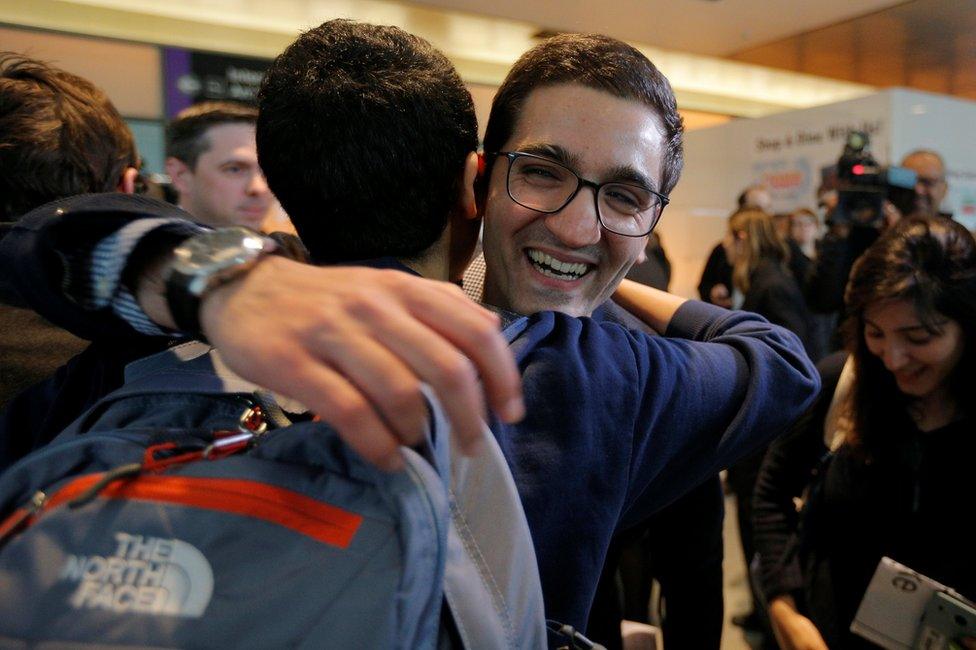
Iranian student Behnam Partopour cleared immigration in Boston on Friday
The US authorities have rolled back a controversial travel ban on people from seven mainly Muslim countries after a judge suspended it.
The state department said it was reversing the cancellations of visas, 60,000 of which were revoked after President Donald Trump's order.
Judge James Robart ruled there were legal grounds to challenge the ban.
Mr Trump called the verdict by the Seattle judge "ridiculous" and vowed to restore the ban.
People affected by the ban treated news of the suspension warily as airlines began allowing them to board flights to America on Saturday.
So has the ban been lifted completely?
Judge Robart's temporary restraining order on Friday halted the ban with immediate effect.
Since then, the state department has said it is reversing visa cancellations and US homeland security employees have been told by their department to comply with the ruling.
Customs officials told airlines that they could resume boarding banned travellers. Qatar Airways, Air France, Etihad Airways, Lufthansa and others said they would do so.
What can Trump do?
The Trump administration argues that the travel ban is designed to protect the US.
It has promised to seek "at the earliest possible time" an emergency stay that would restore the restrictions.
Meanwhile, the US president has raged against Judge Robard on Twitter.
"The opinion of this so-called judge, which essentially takes law-enforcement away from our country, is ridiculous and will be overturned!" he wrote., external
Mr Trump later added in another tweet:, external "What is our country coming to when a judge can halt a Homeland Security travel ban and anyone, even with bad intentions, can come into U.S.?"
How have those affected by the ban reacted themselves?
"I am very happy that we are going to travel today," Fuad Sharef, an Iraqi with an immigration visa who was prevented along with his family from boarding a flight to New York a week ago, told Reuters news agency from Irbil on Saturday. "Finally, we made it."
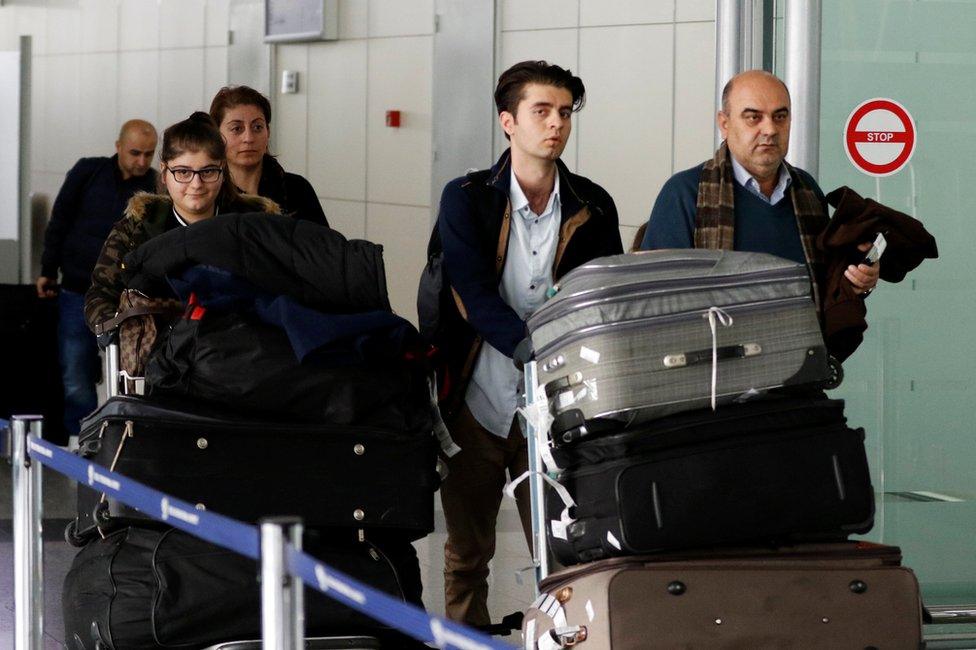
Fuad Sharef (right) and his family were turned back last month
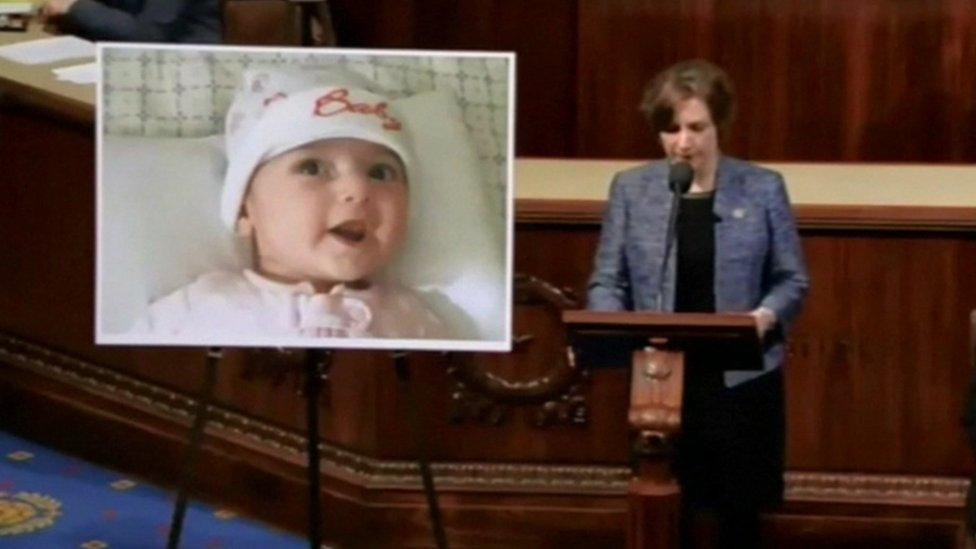
The plight of four-month-old Fatemeh has been highlighted in the US Congress
A cardiologist training in the US, who wished to remain anonymous, told BBC News his Syrian wife had recently joined him but people in her situation would not "take the risk of leaving the country in case things change back again".
Among those standing to benefit most from the suspension of the ban is four-month-old Fatemeh Reshad, an Iranian infant with a heart defect who will now receive life-saving surgery in the US after all.
US doctors have pledged to treat her for free, New York Governor Andrew Cuomo said. , external.
Just how drastic was the ban?
The executive order which has now been suspended banned Syrian refugees indefinitely.
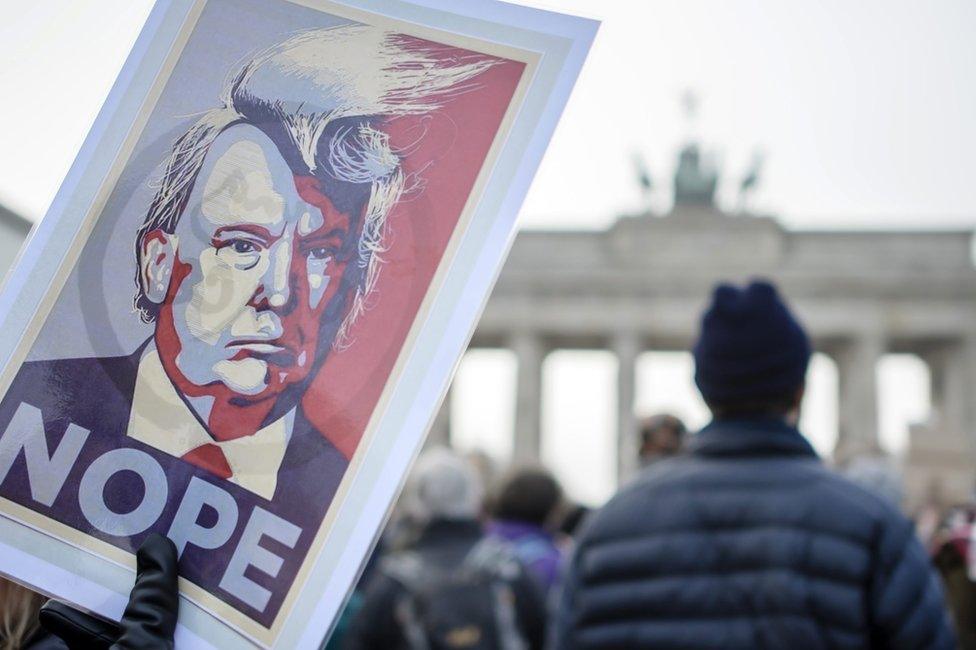
Protesters in Berlin mocked Mr Trump with a parody of Shepard Fairey's famous poster of Barack Obama
Anyone arriving from Iraq, Syria, Iran, Libya, Somalia, Sudan or Yemen faced a 90-day visa suspension.
Huge protests greeted the ban in the US, where demonstrators swamped airports to convey their message that America still welcomed refugees.
In London on Saturday, protesters converged on the US embassy in Grosvenor Square to vent their anger over Mr Trump's policies.
Smaller protest rallies were also held in Paris and Berlin.
How did Robart halt the ban?
He found that legal challenges launched by two states, Washington and Minnesota, were likely to succeed.
"Does the executive order mention the word Islamic, or Muslim?" - Federal Judge James Robart
Washington state Attorney General Bob Ferguson argued the ban was unconstitutional.
"Folks who had visas, folks who were allowed to travel were denied that right without any due process whatsoever - that's un-American and unconstitutional," he told the BBC.
Washington Solicitor General Noah Purcell said the focus of his state's legal challenge was the way the president's order targeted Islam.
Courts in at least four other states - Virginia, New York, Massachusetts and Michigan - are also hearing cases challenging Mr Trump's executive order.

'Don't degrade us'
Dr Samuel Jacob, who is based in Pittsburgh, was born in Syria. His Syrian wife has been unable to join him.
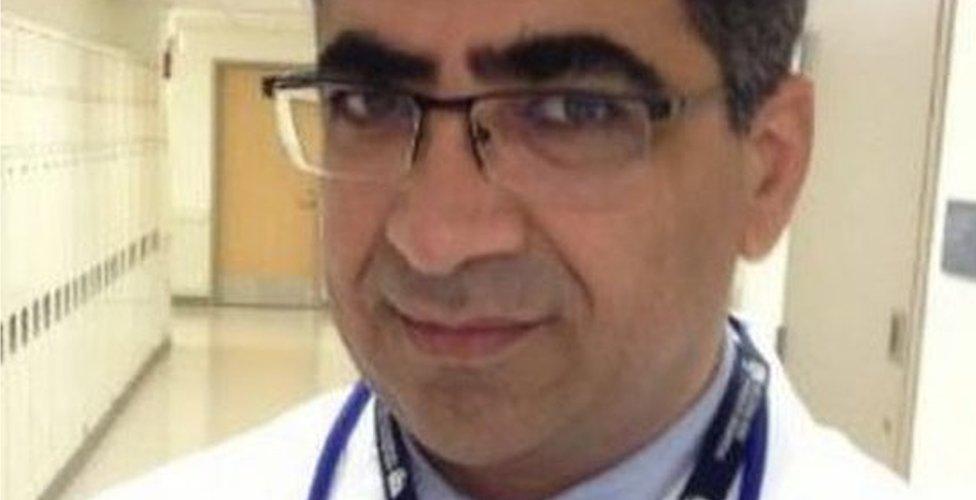
"I am going to meet with my attorney on Tuesday and he will know the latest information about whether my wife can try to come.
"It's hard to really understand the detail of this ruling without speaking to my lawyer and so I can't make a decision about what we can do until then.
"I live and work hard every day in the US to serve everybody and save lives but at the end of the day I still get classified by the government as simply an "x" or a "y" and treated accordingly.
"I work hard for the US and I expect the USA to help me and protect me and let me be with my family, not be degraded in this way."